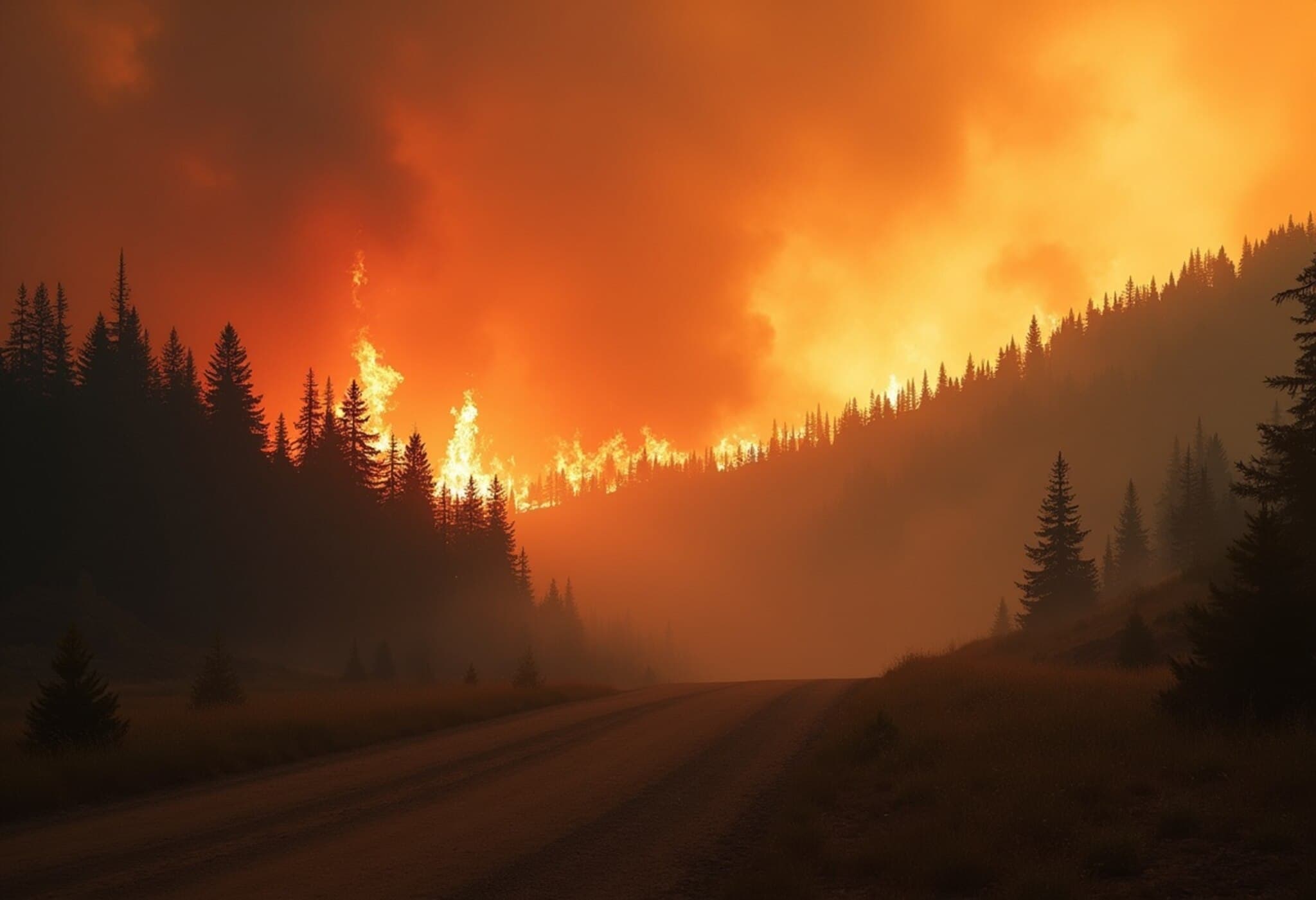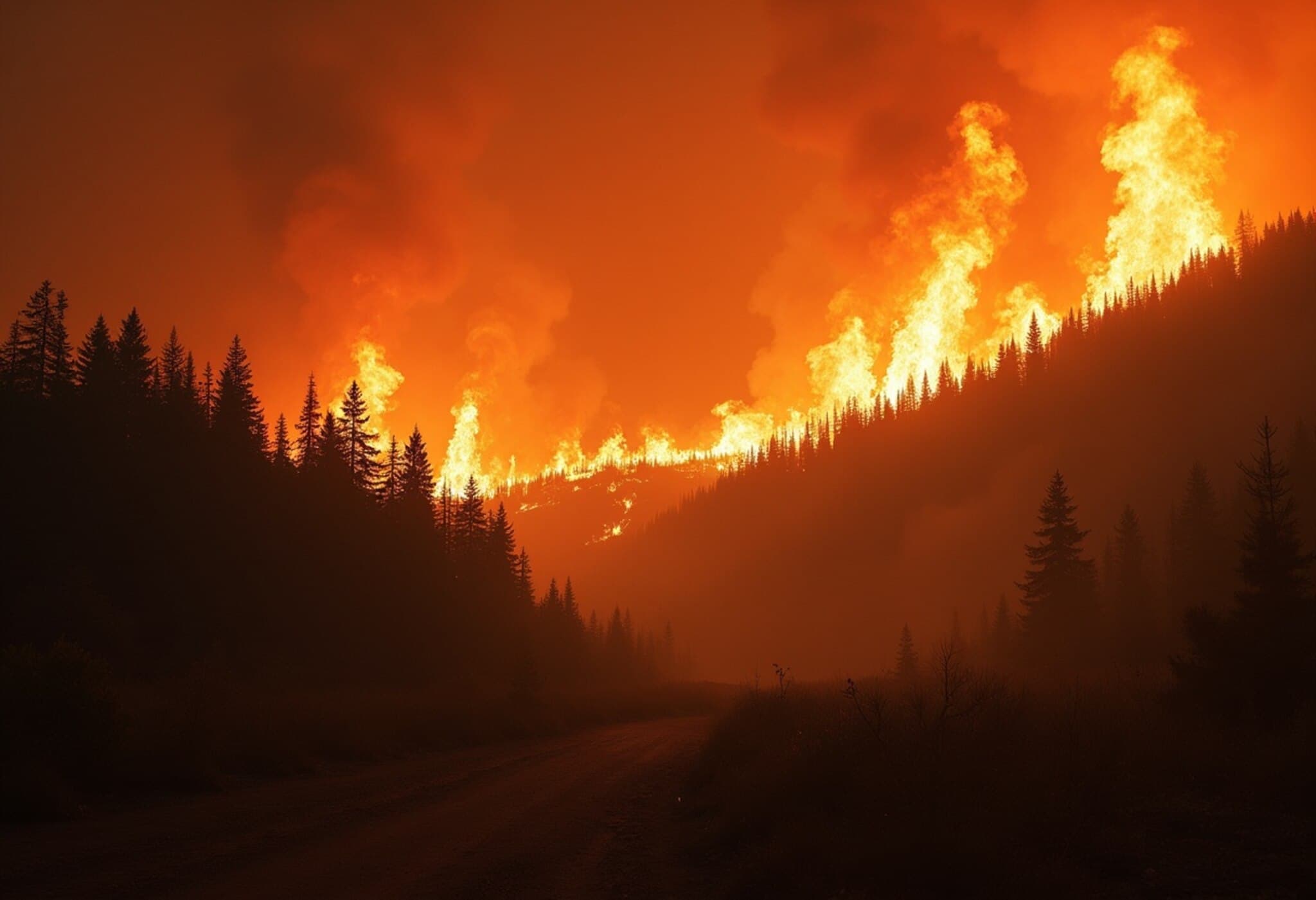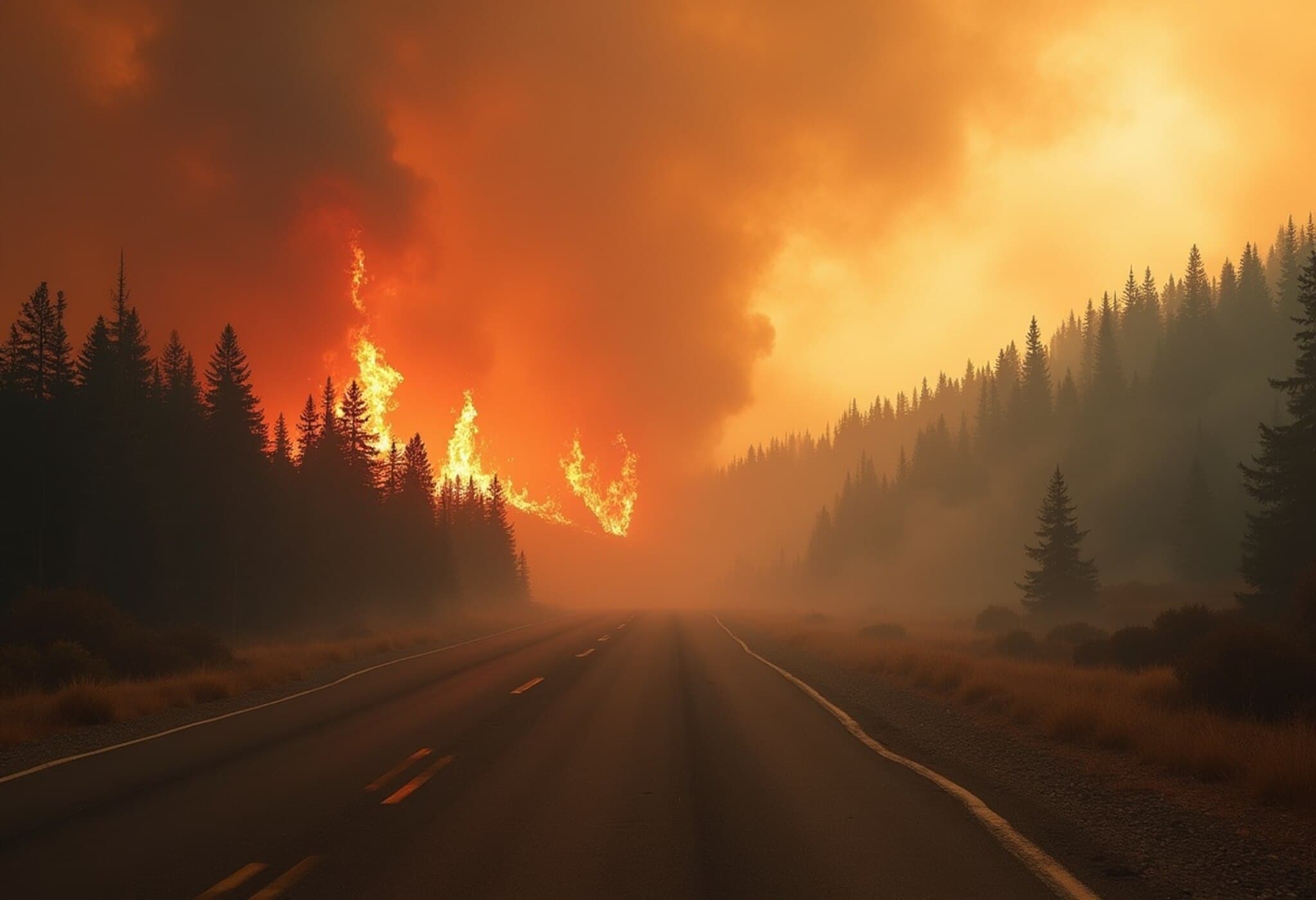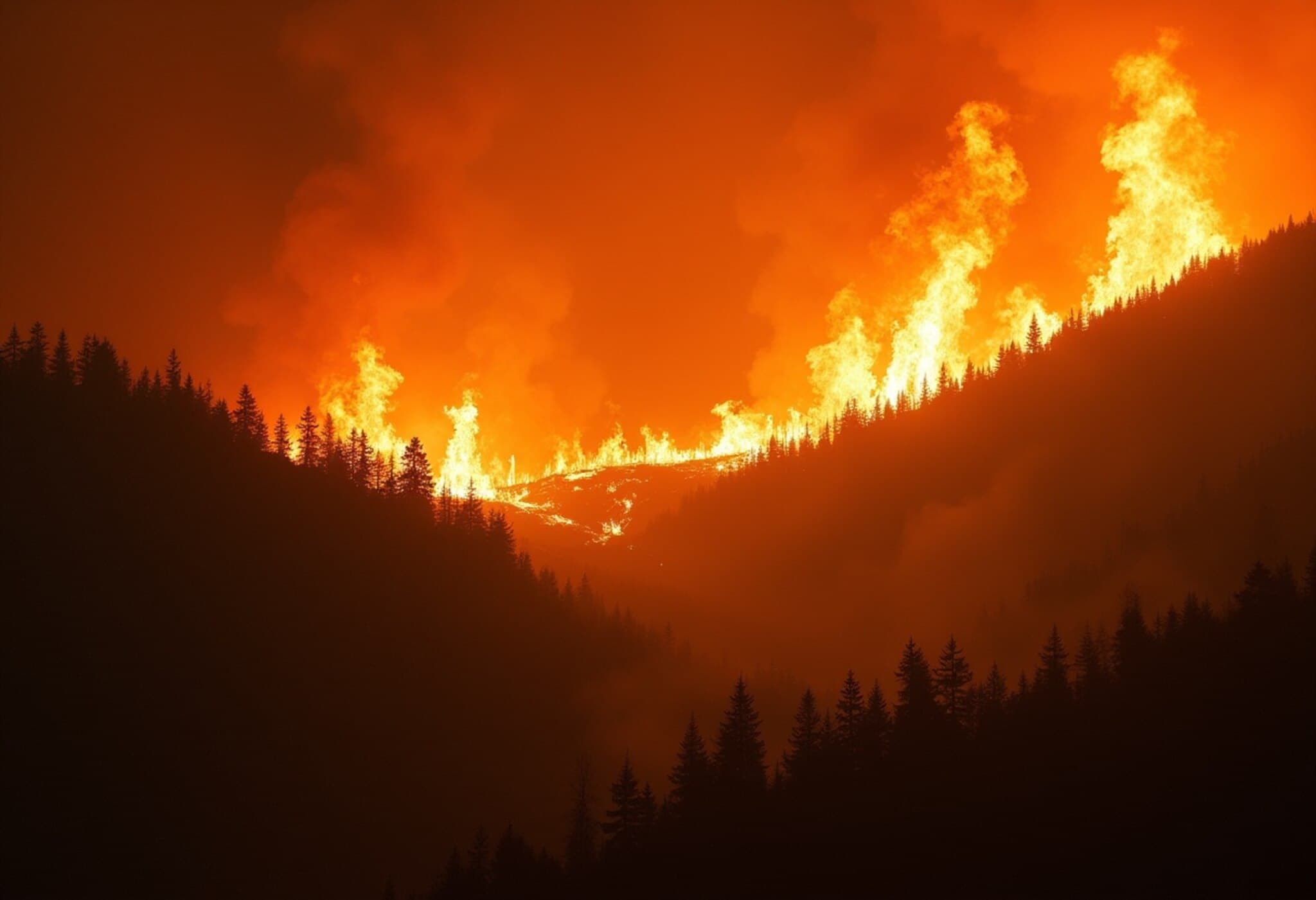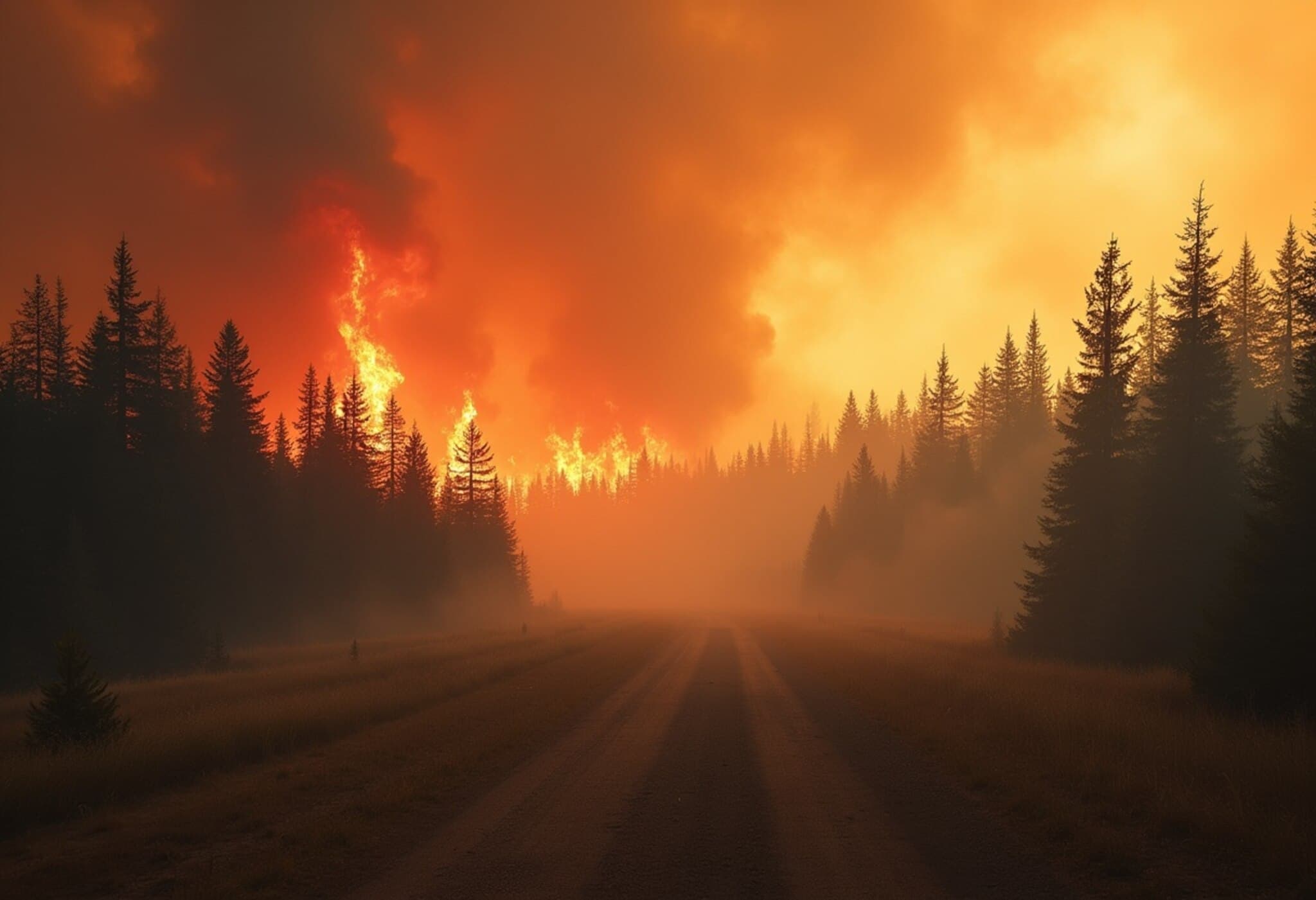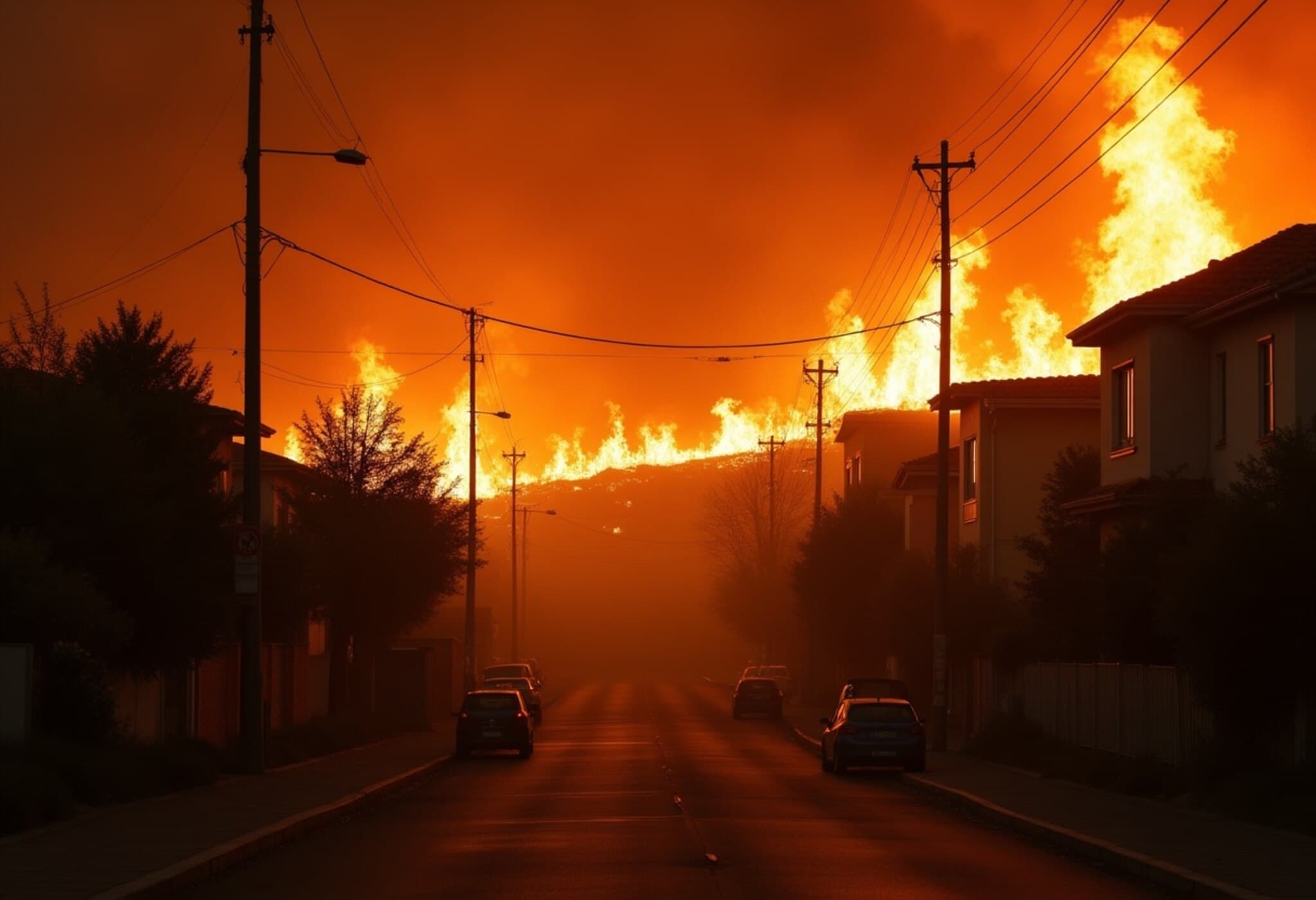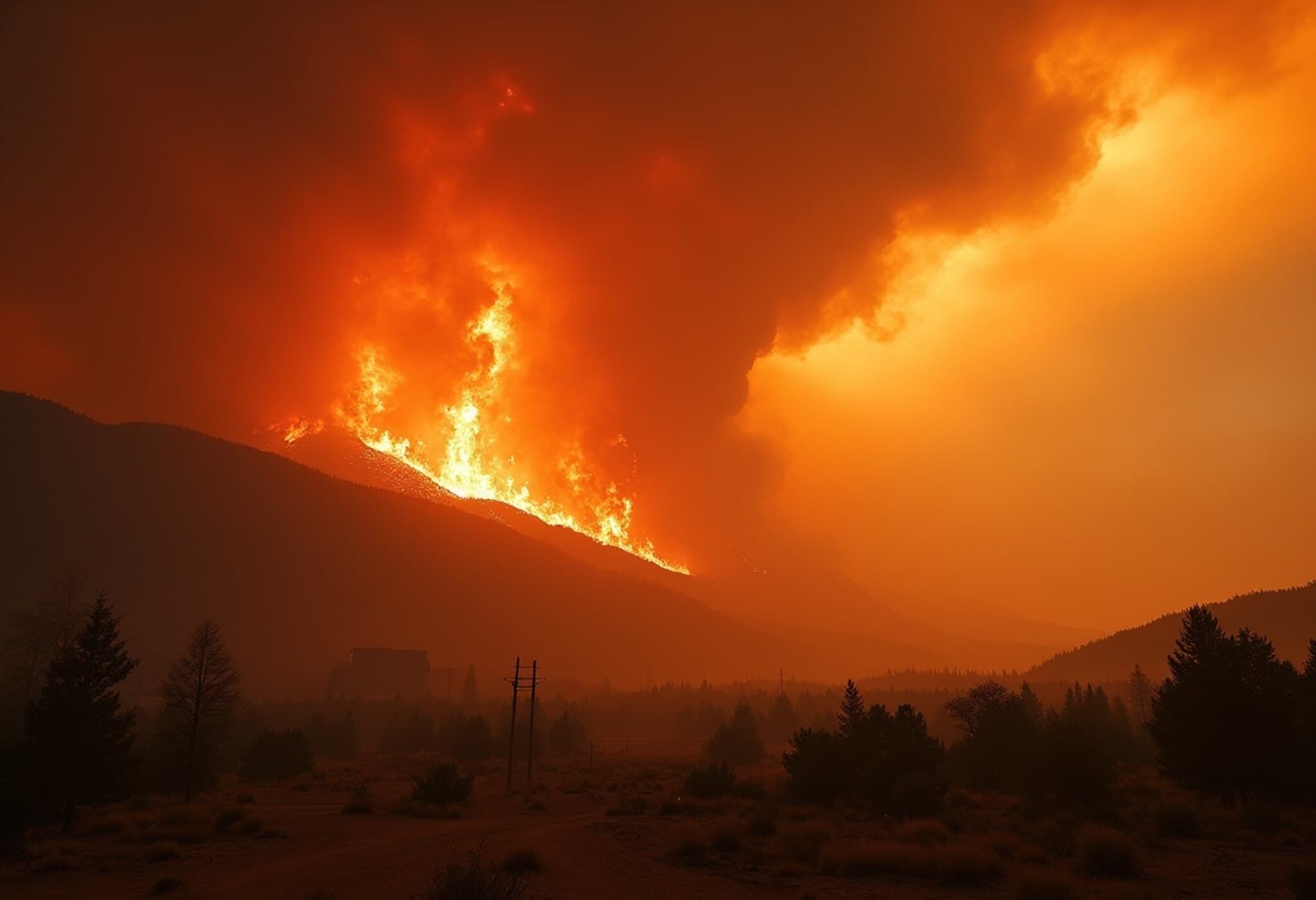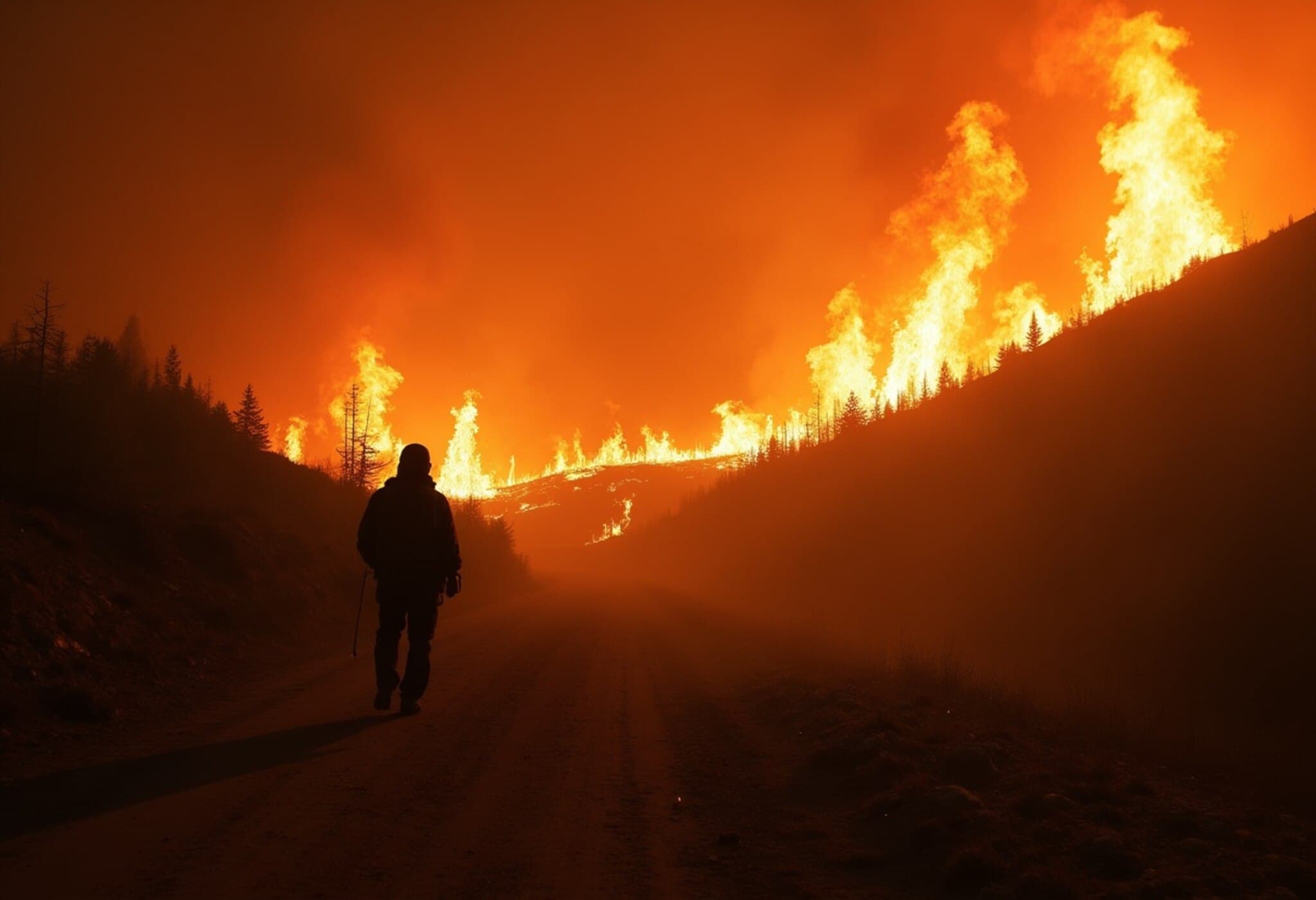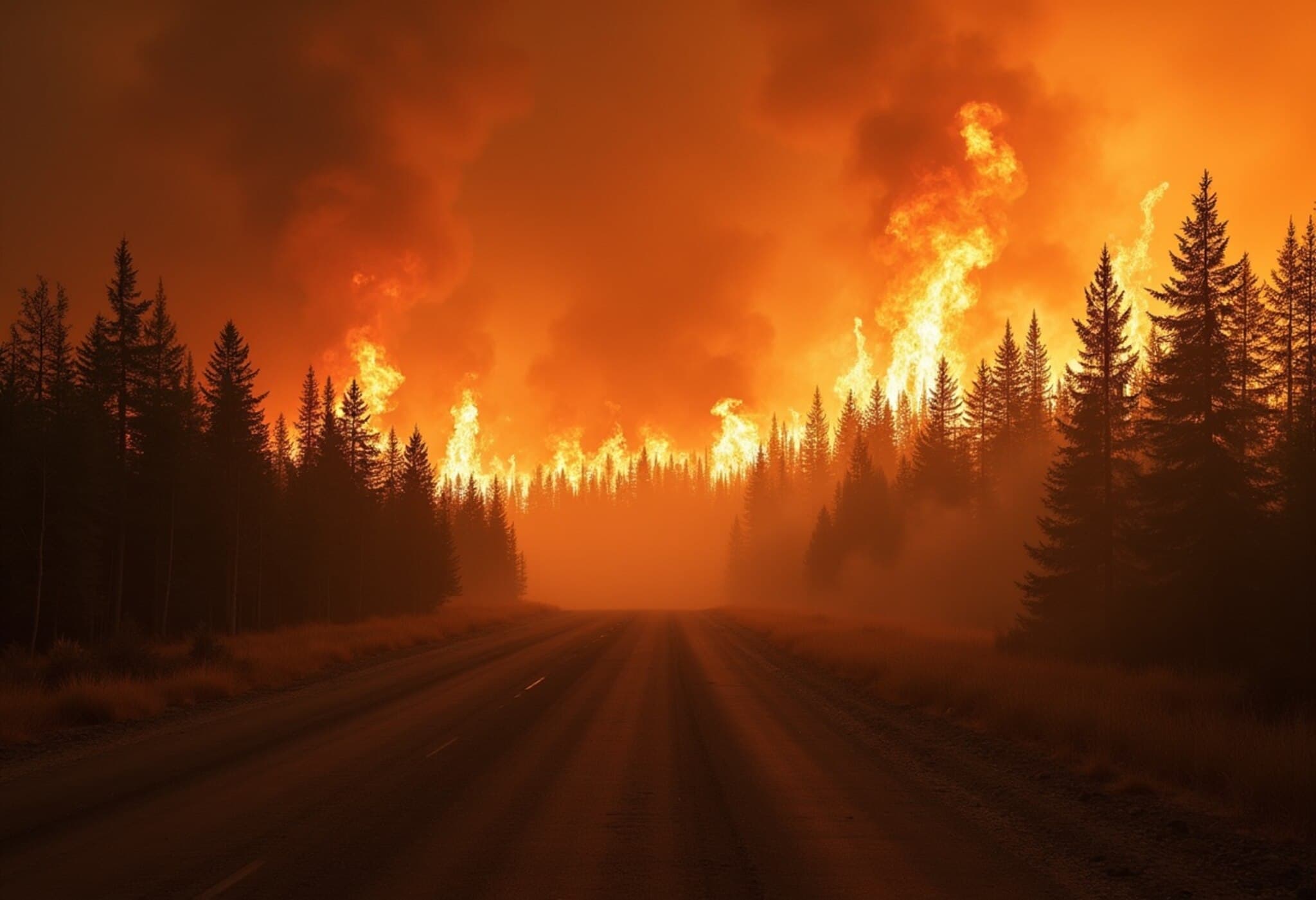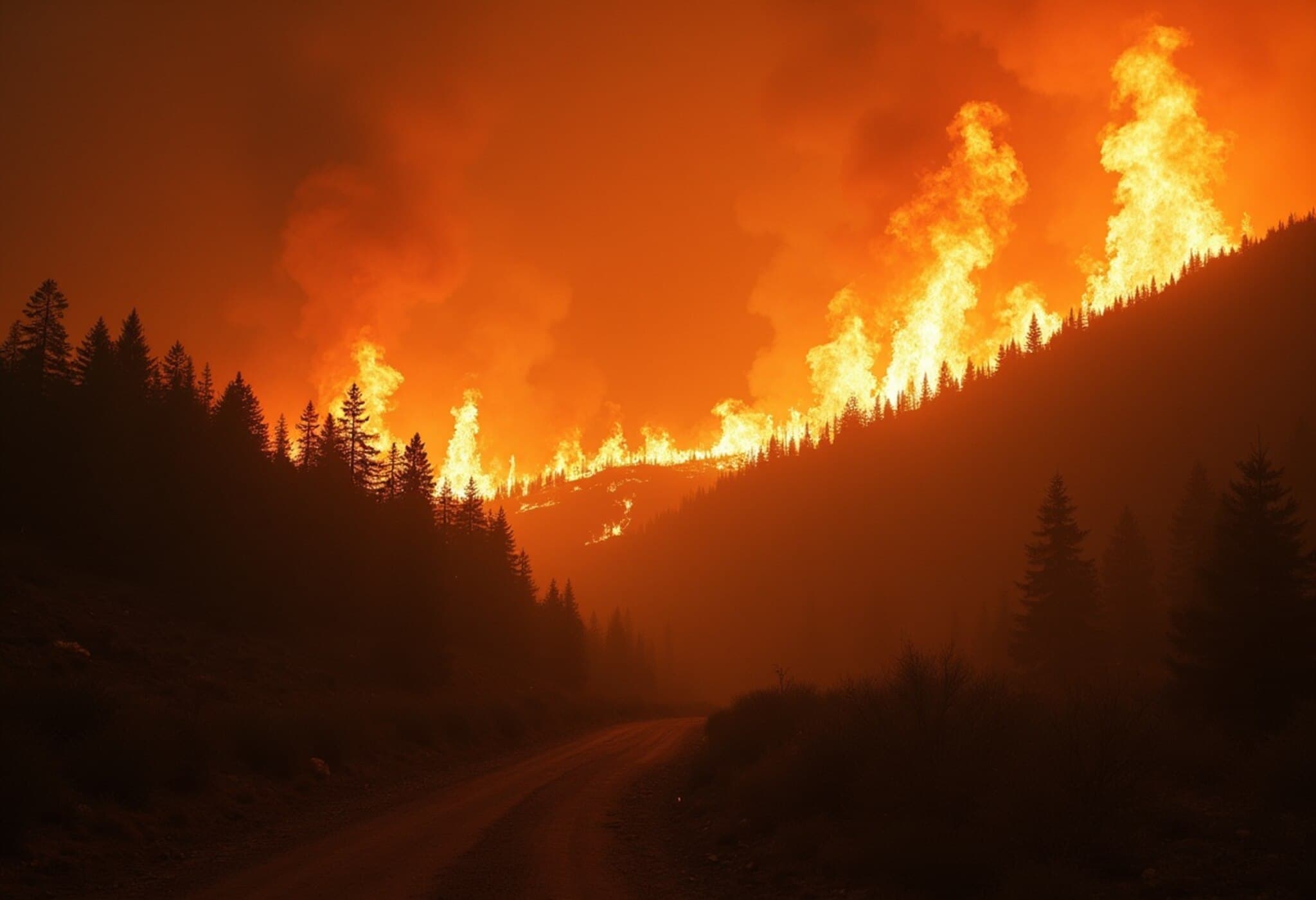US Lawmakers Press Canada on Wildfire Smoke Affecting Midwest Summers
As wildfires rage across parts of Canada this summer, a group of six Republican members of Congress from Minnesota and Wisconsin have voiced growing frustration over the persistent smoke drifting into the United States, clouding the skies and diminishing the quintessential outdoor experience of summer for countless Americans.
Letter Highlights Concerns of Constituents
In a pointed letter sent to Canadian Ambassador Kirsten Hillman, the lawmakers detailed the challenges faced by their constituents due to heavy smoke blanketing their states. "In our neck of the woods, summer months are the best time of the year to spend time outdoors recreating, enjoying time with family, and creating new memories," the letter stated. "Unfortunately, the pervasive wildfire smoke significantly hampers these cherished activities, creating unsafe air quality conditions that have forced many indoors."
The bipartisan group, including Representatives Tom Emmer, Pete Stauber, Brad Finstad, Michelle Fischbach, Glenn Grothman, and Tom Tiffany, emphasized the urgency of Canada's wildfire management strategies and questioned what measures are being undertaken to reduce smoke spillover into U.S. airspace.
Underlying Causes and Regional Impact
The lawmakers pointed toward a combination of factors exacerbating wildfire risks: a perceived lack of active forest management and arson-related fires. This concern echoes a broader debate in American forestry and environmental policy circles about the balance between natural forest regeneration and proactive wildfire mitigation.
According to the Canadian Interagency Forest Fire Centre, Canada has already seen over 2,672 wildfires this year, with substantial evacuations — tens of thousands in Saskatchewan and Manitoba alone — and multiple states of emergency declared. The smoke from these fires not only disrupts daily life but carries significant health risks, from respiratory issues to exacerbation of chronic conditions.
Canada Responds: Prioritizing Wildfire Prevention and Response
Responding to these concerns, Canadian Embassy spokeswoman Tarryn Elliott conveyed that wildfire prevention and mitigation remain top priorities for Canada. "The letter has been received by the Embassy and forwarded to the appropriate Canadian agencies," she said. "The Canadian government takes these challenges very seriously and is committed to improving prevention and response measures."
Canada's Ministry of Natural Resources reiterates that while wildfires are intrinsic to the boreal forest ecosystem's natural cycle, the increasing frequency and intensity of fires have been scientifically linked to climate change—a shared global challenge demanding cross-border collaboration.
Implications for US-Canada Environmental Cooperation
This smoke-related dispute underscores the need for deeper bilateral cooperation on climate resilience and forest management strategies. Given that atmospheric pollution and wildfire impacts do not respect national boundaries, sustained dialogue and joint initiatives could be pivotal in safeguarding public health and preserving the outdoor recreational lifestyle treasured across the Midwest.
- Air Quality Concerns: Prolonged exposure to wildfire smoke poses serious health risks, particularly for vulnerable populations such as children, the elderly, and those with respiratory conditions.
- Economic Impact: Reduced summer outdoor activity could affect tourism, local businesses, and community wellbeing.
- Policy Challenges: Balancing ecosystem management with fire prevention requires nuanced strategies that respect both ecological benefits of fire and public safety.
Editor’s Note
The growing wildfires in Canada and their far-reaching impact on American air quality call for a renewed lens on cross-border environmental policy and public health safeguards. As climate change continues to alter fire behavior, how can the US and Canada build a robust partnership that addresses not only immediate risk mitigation but also long-term ecosystem management and climate adaptation strategies? This developing story urges readers to consider the interconnectedness of environmental stewardship and community wellbeing across borders.

